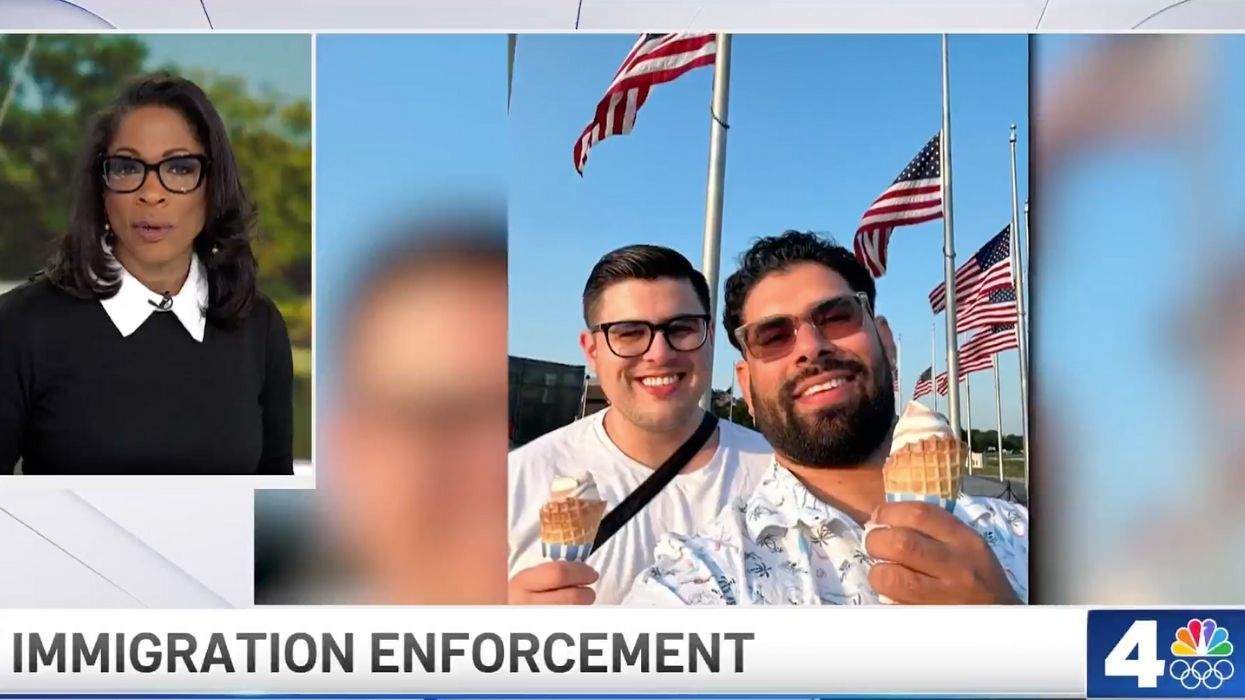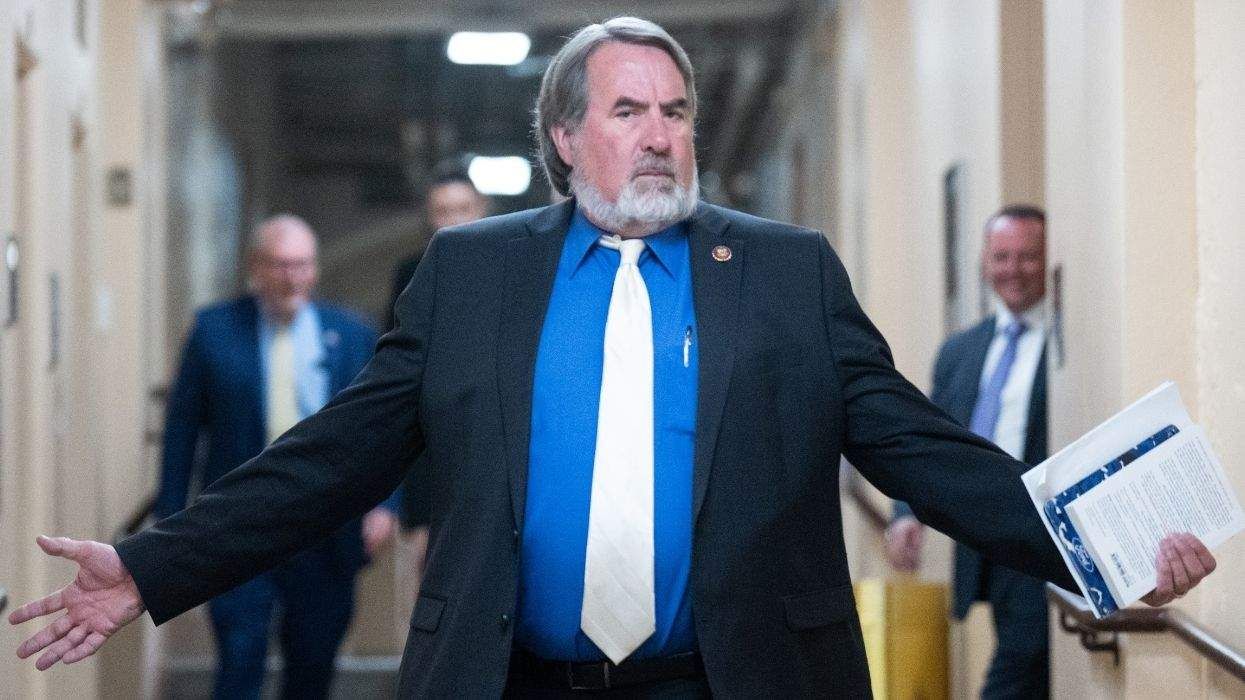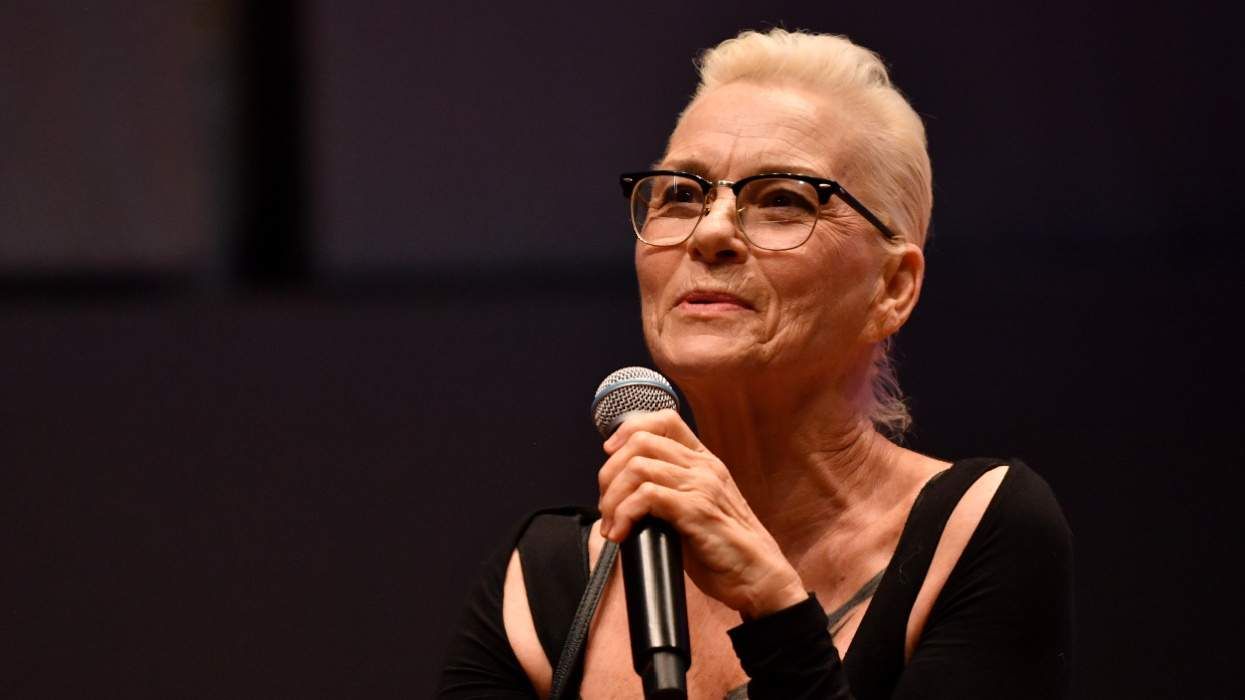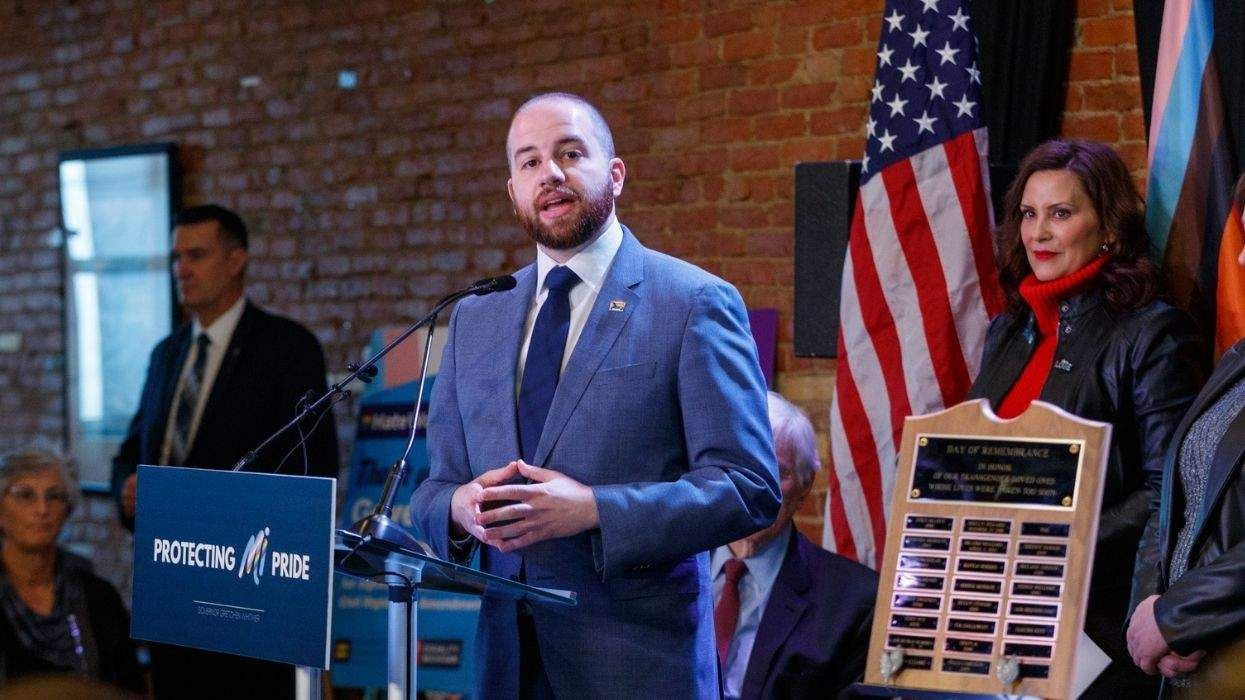The lower house of Germany's Parliament made history by voting in favor of marriage equality June 30, but you'd be forgiven for forgetting that same-sex marriage wasn't already legal in the nation.
Germany, the most populous country in Europe, is one of the most tolerant and progressive in the world on LGBT issues. When it was among the 39 countries polled by the Pew Research Center in 2013, just 11 percent of the population felt that society should "reject" homosexuality. That puts Germany well ahead of countries like the United States, France, and the United Kingdom, where same-sex unions have been legal for years. The only country that scored higher in the Pew survey was Spain. A poll conducted by Germany's Federal Anti-Discrimination Agency earlier this year found that Germans overwhelmingly support marriage equality -- with 83 percent in favor.
But the government's slow embrace of marriage equality illustrates the divide between policy and public opinion even in liberal democracies widely viewed as leaders on global LGBT rights. The case of Germany may serve as an important lesson to other countries that have struggled to legalize marriage for all -- particularly a democracy Down Under.
What took Germany so long?
German Chancellor Angela Merkel was a major force in preventing a vote on same-sex marriage, advocates say. Merkel, who has led the government since 2005, had long staunchly opposed legal recognition for same-sex couples. During a 2013 town hall meeting, she said her resistance was rooted in her belief in a "traditional" definition of family. "I am uncertain about children's well-being, for instance," said Merkel, who also serves as the leader of the conservative Christian Democratic Union, a German political party.
Renato Sabbadini, executive director of the International Lesbian, Gay, Bisexual, Trans and Intersex Association, said Merkel's opposition to "total equality" makes sense given her background.
The daughter of a Protestant pastor, the chancellor spent her childhood in Templin, a small town in the state of Brandenburg, about an hour's drive from Berlin. After the post-World War II division of Germany, Templin became part of East Germany, a Communist state until the reunification of Germany in 1991. Merkel, like many East German youth, was a member of the socialist Free German Youth during her adolescence.
Under the Communist governments of postwar Europe, there was "no feminism as we know it here and none of the sexual liberation movements of the '60s and '70s," Sabbatini said.
That's why formerly Communist countries like Poland and Romania have been much slower to embrace equality from a legislative standpoint. Despite Poland's vibrant LGBT movement, queer and trans people in the nation have faced a "conservative backlash," as OutRight International deputy director Maria Sjodin told The Advocate. KPH, an advocacy group in Warsaw, has had its windows smashed at least four times in the past year. At one point, the building was guarded by armed police.
"These are countries that diverge from the rest of Europe," Sabbatini said. He added that "there was no way to prepare" for the explosion in LGBT rights over the past decade.
This cultural context may have influenced Merkel's conservative politics, but her views have shifted ever so slightly in recent months. Prior to the vote in the Bundestag (the lower house), at an event hosted by Brigitte, a German women's magazine, she said she had spoken with a lesbian mother about her views on marriage. "I tell you what, come and visit me in my home, where I live with my lesbian partner and eight foster children," Merkel recalled the woman saying to her. "The foster children have been with us for many years, and I think they are doing well."
After years of blocking a free vote (rather than one deferring to party positions), Merkel had a change of heart. She said the discussion should be a "question of conscience," signaling that she would be open to a vote of the full Parliament.
The dominos began to fall almost immediately. Martin Schulz, who is running as the Social Democrats' candidate for chancellor in this September's election, immediately called on Germany's lower house to debate the issue. The discussion was brief and muted, and the final tally should indicate why. "Ehe Fur Alle," the German name for the marriage equality legislation, passed with a massive majority in the Bundestag -- sailing through by a vote of 393 to 226. The Bundesrat, the upper house, affirmed the vote a few days later, and President Frank-Walter Steinmeier is expected to sign the bill into law soon.
This outcome was expected. A majority of the Parliament has supported same-sex marriage "since at least 2009," said Sandro Wiggerich, a board member for the German LGBT rights organization LSVD. It was the leadership that was the problem.
Why Australia could be next
Malta, the Catholic country that finally legalized divorce in 2011, was the next to follow in Germany's footsteps by legalizing same-sex marriage last week. Switzerland and Austria, which frequently look at what Germany is doing, could also be influenced by the Bundestag vote.
But Germany's sudden victory on marriage equality has given immense hope to another LGBT-friendly country that just can't seem to clear that hurdle: Australia.
Australians have long supported full legal recognition for same-sex couples. A 2007 poll commissioned by GetUp!, a progressive lobby group, found that 57 percent of Australians were in favor of same-sex marriage, and that majority has only become more vocal in the decade since. As Aussie celebs like Margot Robbie, Hugh Jackman, Olivia Newton-John, and Nicole Kidman have spoken out in support of the country's equality campaign, that share is now up to 62 percent, according to a recent poll.
"Federal politicians have been behind the flow of public opinion on this issue in Australia," said Siri May, the United Nations program coordinator for OutRight Action International.
May explained that in 2008, Australia changed its federal relationship recognition laws to ensure that same-sex couples are given "de facto" marriage rights, even though the government doesn't formally recognize their relationship. In most Australian jurisdictions, she said, two mothers can be documented on the birth certificate of their child -- even if they aren't married. And since February of this year, same-sex couples have been allowed to legally adopt in every state, aside from the Northern Territory.
But de facto recognition is an "inadequate replacement for marriage," May said.
For instance, let's say that you and your partner have been together for 10 years. Your partner suddenly becomes ill and goes to the hospital. He is unconscious and cannot speak for himself. In these dire circumstances, you will be forced to show proof of your relationship in order to advocate for your partner. The legal requirement is cohabitation for 12 months, but how exactly do you provide evidence of that? And what if you and your long-term partner don't live together?
"It places a burden of complex evidence on LGBT couples, sometimes at the worst moment in their lives," said Ivan Hinton-Teoh, founder of the advocacy group Just Equal. "It is open to legal challenge. It reinforces stigma around our relationships that they are somehow less than and that LGBT people and their relationships must be controlled and denied the standing of others."
"Marriage equality would provide formal, simple, and incontestable recognition for LGBT people and their families," he added.
The trouble Down Under
What makes the case of Australia different from Germany, however, is that while Merkel voted no even during the Bundestag referendum, Australian Prime Minister Malcolm Turnbull supports legal same-sex unions. The problem is that Turnbull, who is head of the center-right Liberal Party, has insisted on a plebiscite, or popular vote, before he will allow the Australian Parliament to deliberate the issue. That would allow members of the electorate to weigh in on the issue through a nonbinding vote. Parliament rejected the idea last year, but supporters of a plebiscite are trying to bring it back.
Shelley Argent, the national spokesperson for PFLAG Australia, told The Advocate that LGBT groups have universally opposed the plebiscite. She said that a public vote, which would cost the country a reported $170 million, would be "insulting" to LGBT people and could have a "very negative impact" on their mental health.
"As a parent, I cannot stand by and watch my child be treated as second-rate," said Argent, who worried about her son being "impacted." "To constantly keep defending him from the nastiness and hate would have been too much for me."
Statistics from Australia's National LGBTI Health Alliance show that queer youth between the ages of 16 and 27 are five times more likely than their peers to attempt suicide. Overall, data shows that 16 percent of LGBT youth in Australia have tried to take their own lives. That percentage is even higher for the country's trans population: 35 percent of trans adults have attempted to end their lives.
This population, Argent said, is extremely vulnerable to the right-wing hate a public vote would bring out.
And the increasingly tense marriage debate has already brought out the trolls. Margaret Court, a former tennis star who has become a Christian pastor since retiring from the sport, wrote in a May letter to The West Australian that she would be boycotting Qantas Airways, saying the Australian airline "has become an active promoter for same-sex marriage." She would later add that tennis is "full of lesbians."
Most Australians do not share these views, but the conservative minority is as influential as it is vocal. Argent said that Turnbull, despite his support for equal marriage, is "being controlled by right-wing extremists" in his party.
When Turnbull became prime minister in 2015 by defeating incumbent Tony Abbott, Argent said, he signed an agreement with the National Party of Australia that he wouldn't allow a free vote on marriage equality. The Liberal Party is currently in a coalition government with the National Party, which traditionally represented the interests of rural voters.
George Christensen, a Parliament member from conservative Queensland, has said that any contrary action from Turnbull would violate that agreement, leading to massive political fallout.
Why Turnbull should act now
But as Merkel's seeming about-face on same-sex marriage shows, the consequences of inaction could be far worse. Although the chancellor touted her "life-changing experience" prior to the Bundestag vote, the truth was that Merkel's hand was forced. The Social Democratic, Free Democratic, and Green Parties had warned Merkel that they would not join a coalition with her if she did not allow a long-overdue debate on same-sex unions.
Boris Dittrich, advocacy director for Human Rights Watch's LGBT rights program, added that move was strategic for Merkel. By allowing a vote on marriage equality ahead of the September election, she "took it out of the campaign," he said. Merkel's opponents will no longer be able to use her personal views on LGBT issues against her.
Turnbull may be faced with a similar ultimatum: equality or bust.
A May poll commissioned by PFLAG found that 40 percent of Australians would be unlikely to back the coalition government in the next election if Turnbull doesn't allow for a free vote on same-sex marriage. This includes 26 percent of the prime minister's own party members. Nearly three-quarters of the 1,000 respondents (73 percent) surveyed by PFLAG felt that members of Parliament should be able to vote on the issue.
"With overwhelming frustration only elevating in the community and the government's popularity plummeting, the likelihood that this inaction will have a negative impact on the government at the next election is highly likely," said Hinton-Teoh, who noted that the coalition held on to an extremely slim majority in the previous election.
Leaders like Turnbull are likely worried about conservative backlash that followed the marriage equality campaigns in countries like France and Mexico as well as the United States. The outcry in Germany, though, has been minimal. Although conservative leaders in the Christian Social Union have threatened to take the matter to the country's Constitutional Court, claiming the Bundestag vote violates the constitution, same-sex marriage is unlikely to be struck down.
Australia may continue to lag behind, but it doesn't have to.
"The recent achievements at the Bundestag shows us how simple this reform truly is and how quickly it can be achieved," Hinton-Teoh said. "It's time Australia takes that step and joins our closest allies in affording equal dignity to LGBT Australians."















Charlie Kirk DID say stoning gay people was the 'perfect law' — and these other heinous quotes
These are some of his worst comments about LGBTQ+ people made by Charlie Kirk.